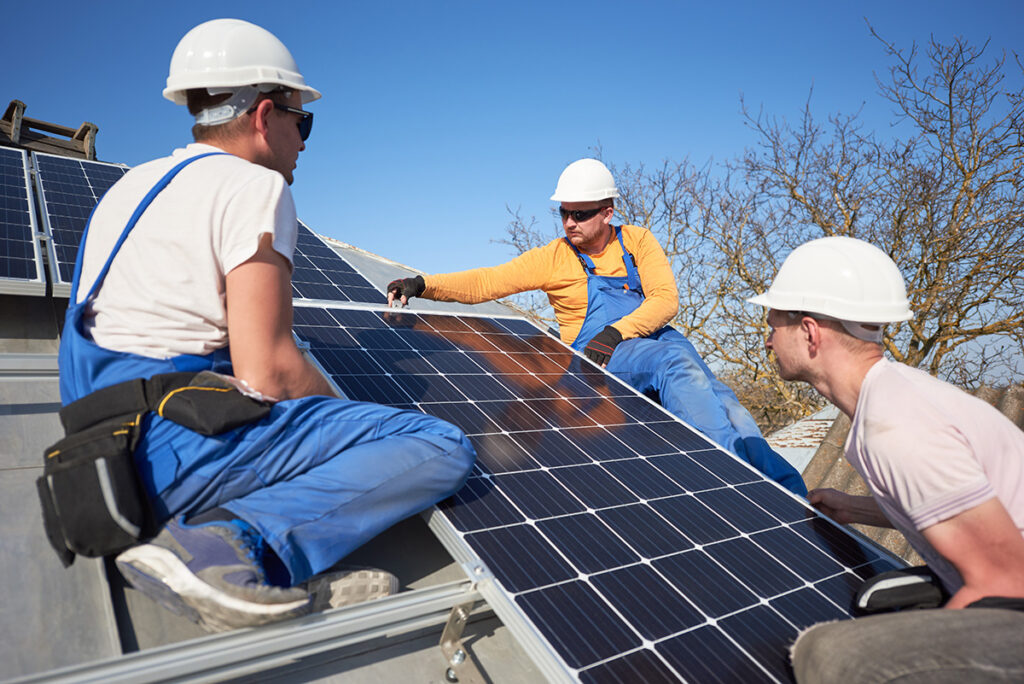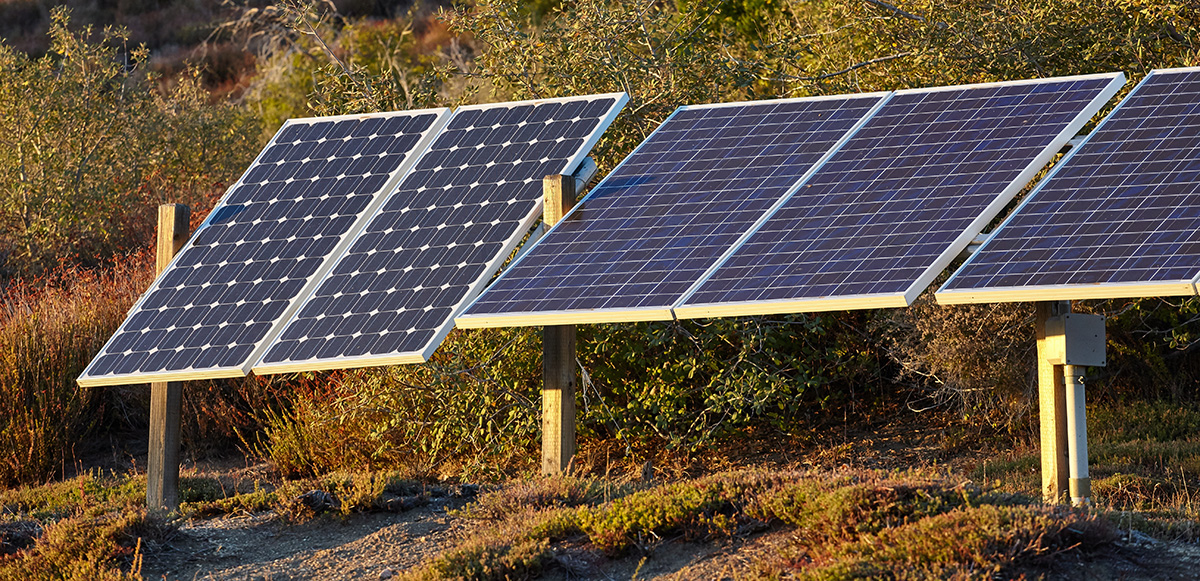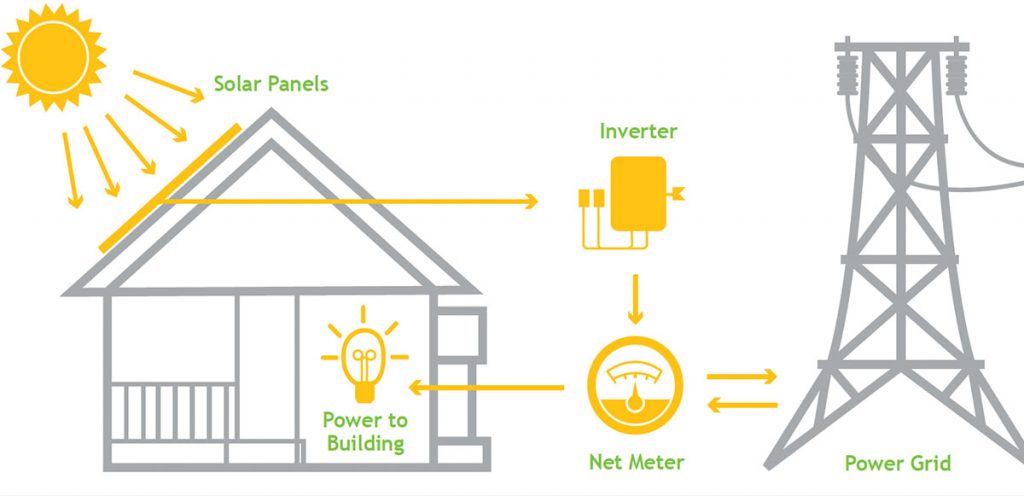
How Does Solar Energy Work?
The potential of solar power is incredible—PV panels of the size of our Lake Michigan can generate enough electricity for the whole of the US! It is the fastest growing renewable energy source around the globe, projected to make up to 60% of the renewable power over the next five years.
With the reduced installation costs, tax benefits, and as a measure to combat climate change, it makes sense to switch to solar for U.S homebuyers, now more than ever. But before making the transition, you might be curious to know how solar panels work. Let’s take a peek under the hood.
First Things First: How Do Solar Panels Make Electricity?
Solar panels are designed to absorb and filter the photons released by the sun. The panels are made of closely-linked photovoltaic cells consisting of two layers of semiconducting materials, such as silicon. Phosphorus is added into the top layer of silicon, which increases the number of electrons to create a negative charge, while the bottom layer is treated with boron, which subtracts electrons, giving it a positive charge.
This creates an electric field between the two silicon layers. When the photons from sunlight hit these photovoltaic cells, electrons are knocked free from the atomic structure. The electric field then pushes these newly separated electrons out of the silicon junction, creating energy.
The solar array (collection of multiple wired solar panels) generates direct current (DC). This electricity then moves through the inverter with the help of a conducive wire and gets converted to alternating current (AC). The AC goes to the breaker box to power your home or commercial building and any excess electricity goes back to your electricity grid.

What Are the Different Types of Solar Power Systems?
Based on connectivity and storage options, solar power systems come in three different types: on-grid, off-grid, and hybrid.
On-Grid Solar System
This is the most common type of solar panel because it’s connected to the utility grids in your local area. Whatever excess energy your panels generate is supplied to the electricity grid, and you earn revenue out of it (known as net metering). This reduces your utility bills further.
And in case the panels fail to generate enough energy to fulfill your daily electricity requirements, you can draw power from the utility grid. On-grid solar systems are a good option, except in remote areas with no access to utility grids, or in areas that experience frequent power cuts.
Off-Grid Solar System
An off-grid solar panel system is not attached to any electricity grid and it uses batteries to store the power generated by the solar array. When the panels generate excess energy, it is stored in the batteries, which step up when you lose access to sunlight (at night or during bad weather conditions).
With this solar system, you get complete independence from grid failure and power outages. The system is remote and self-sufficient, as long as there are batteries for energy backup. It gives you access to electricity even in regions without provisions for a power connection.
Hybrid Solar System
A hybrid solar system combines the best features of both on-grid and off-grid systems. It is connected to the utility grid, and also has the backup of inverters and batteries.
This allows your system to store the excess energy produced during the daytime in the batteries, and save them for future use, instead of sending it to the grid. When the batteries have reached their full capacity and your system is still generating more power, only then does it go into the utility grid.
With a hybrid system, your house will have uninterrupted access to electricity all the time, despite power outages and bad weather conditions.
Ready to make the switch?
FAQs
How Do I Get Electricity on Cloudy/Rainy Days and at Night?
When you’re planning to install solar panels for home, this might be the first question that comes to mind. After all, a solar array depends entirely on sunlight to produce energy. So how does your house get access to power during the evening, night, or the times when the sky is overcast?
The answer is simple. In off-grid systems, the batteries will store excess electricity produced by the system, and they are put to use when your solar panels are not actively generating power. If you go with an on-grid system, it will draw electricity directly from the grid it is connected with. Hybrid systems will source electricity from the batteries, and from the grid, in case the batteries run out of power.
Do I Need An Inverter?
After fitting with solar panels in your home, you need to install an inverter. Solar panels convert photons from the sun into direct current (DC) electricity. Direct current electricity cycles electrons in a single-direction circuit.
The United States primarily uses alternating current (AC) electricity where the electrons are pushed and pulled. The inverter converts the DC power from the solar panels into AC that your home or business can utilize.
What Is Net Metering & How Does It Help Me?
Unless you’ve chosen to live completely off the grid in a cabin in the woods, chances are that you are adding solar panels to a home or business that is already connected to the electrical grid. Depending on the weather and the number of panels, there may be times when your panels produce too much energy.
You can sell off this overflow of energy to the utility company through a process called Net Metering. When your home needs more energy than your solar panels are producing, you can use the energy credits from your excess energy to reduce your energy bill.
Not all utility companies offer net metering. But if you happen to live in an area that does, it can be a great way to maximize the benefits of your solar system. You’ll need a two-way meter to keep track of the energy sent to the grid along with the energy received from it.

Make Your Property Future-Ready
The future is solar. In the last 8 years, the cost of solar panels has gone down by 70%, and now you also get a 30% federal tax credit option for the next 10 years. This is undoubtedly the best time to make the move and get solar panels for home.
